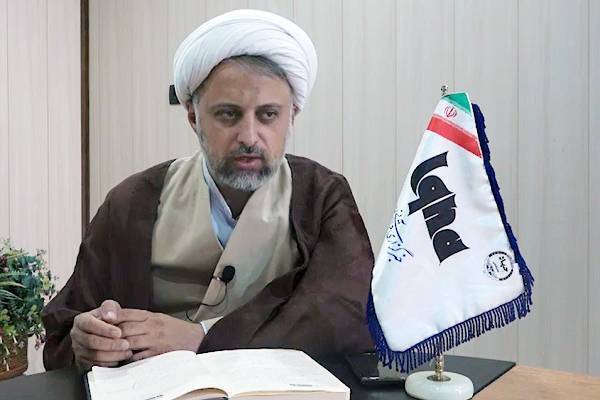Core of Imam Hussein’s Uprising Was Fulfilling Religious Duty: Lecturer

Hojat-ol-Islam Hamed Qara’ati, a faculty member at Baqir al-Olum University, made the statements in an interview with IQNA.
In response to a question about the central theme of Imam Hussein’s (AS) uprising and how it can serve as a model today, Qara’ati explained that Imam Hussein (AS) cited various reasons for his movement—each addressing a different social or religious challenge of his time.
“In his statements, Imam Hussein (AS) spoke of reforming the Prophet’s (PBUH) nation, resisting injustice and humiliation, refusing to pledge allegiance to someone like Yazid, and reviving the Prophet’s (PBUH) tradition,” Qara’ati said. “This diversity of motives reflects the range of problems he was confronting.”
Qara’ati noted that the key to following Imam Hussein’s (AS) example lies in first identifying one’s own personal or societal challenge, then seeking guidance from the Imam’s conduct. “Whether the issue is individual, familial, or social, the path to emulation begins by asking: What would Imam Hussein (AS) do in this situation?”
Read More:
He added, “If we were to summarize all of Imam Hussein’s actions and positions in the Karbala uprising into one concept, it would be the fulfillment of duty.”
Qara’ati pointed out that Imam Hussein (AS) even abandoned his pilgrimage during the Hajj season, believing that the invitation from the people had made his responsibility clear. “Even if the people’s call was unstable,” he said, “they sent letters and messengers and pleaded with him to lead. This made the obligation binding upon him—and he did not ignore it.” He likened this to a statement by Imam Ali (AS), who once said he would not have accepted the caliphate had the people not come forward and asked him.
The scholar criticized modern tendencies to honor rituals while neglecting personal responsibility. “Many today revere religious ceremonies but run from duty,” he said. “Our religious practice has become ritualistic, limited to certain days and spaces. But the greatest lesson from Imam Hussein (AS) is to carry out one’s responsibility in every role and circumstance.”
As an example, he cited the recent 12-day US-Israeli aggression on Iran, during which various Iranians—from a TV anchor who continued his work while under attack, to a baker who returned to his job despite losing his brother—demonstrated a deep sense of duty inspired by Ashura.
Read More:
Referring to Lady Zaynab’s (SA) famous words, “I saw nothing but beauty,” Qara’ati explained that her statement reflected the dignity of having fulfilled one’s duty. “The death of an infant or young men like Ali Akbar and Qasem is not beautiful in itself,” he said. “It becomes meaningful only when it occurs in the course of faithfully performing one’s divine mission.”
He also quoted Abbas ibn Ali (AS), who said during battle: “By God, if you cut off my right hand, I will never stop defending my religion.” According to Qara’ati, this shows that true sacrifice lies in staying committed to one’s duty. “It’s why, in our hadiths, even a man who dies while providing for his family is regarded as a martyr—because he was acting upon his divine responsibility,” he said.
4293197



